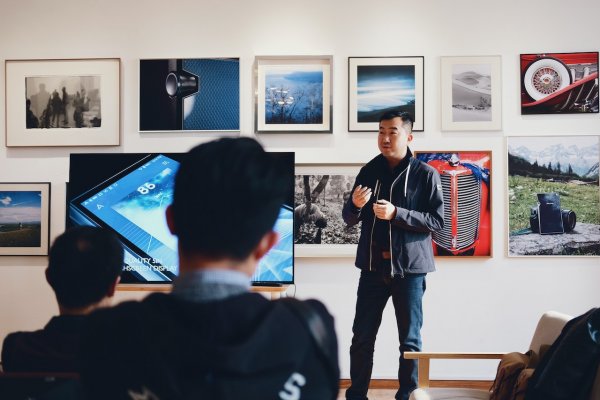There is no single answer to this question since what makes a good trainer can vary depending on the context and focus of their training. However, some essential qualities that all good trainers share include being able to engage and motivate learners, having in-depth knowledge of their subject matter, and being able to effectively communicate both verbally and non-verbally. Here are a few more specific tips on how to become a good trainer.
It is always a good idea to get certified in the field you wish to train others in. There are many different certification courses available, so do some research to find one that will best fit your needs. This will show your commitment to the profession and also give you the necessary credentials to back up your expertise. You can find Cert IV in Training and Assessment at many private training institutes. Additionally, many universities offer diploma and degree programs in adult education, which can also be beneficial. If you already have a related degree or experience, you may be able to get certified through a Recognition of Prior Learning (RPL) process.
While it is important to be knowledgeable about the subject you are teaching, it is equally important to develop your own style of teaching. This will help you to better engage with your learners and keep them motivated. Consider what methods of teaching work best for you and then find ways to incorporate them into your classes. For example, if you are a visual learner, make sure to use plenty of visuals in your presentation. If you are more of a hands-on learner, use simulations or exercises that allow learners to get involved. It's also important to be aware of the different learning styles of your students so that you can adjust your teaching methods accordingly.
One of the most important things you can do as a trainer is to be prepared for each class or session. This means being organized, knowing your material inside and out, and having all of the necessary supplies on hand. It is also helpful to have contingency plans in case something unexpected comes up. By being prepared, you will be able to maintain control of the situation and deliver a successful training session. Also, if you ever need to refer back to something, you will have all of your materials readily available. It's always better to be over-prepared than under-prepared.
Enthusiasm is contagious, so if you are passionate about the subject you are teaching, your students will be more likely to be interested and engaged. It is also important to be energetic and engaging when leading a training session. If you seem bored or disinterested in what you are saying, your students will quickly lose interest as well. Be sure to vary your tone and keep things interesting by adding personal anecdotes or using props when appropriate. While it is important to be professional, you don't want your students to feel like they are in a stuffy lecture hall.
Giving feedback is an important part of being a trainer. It allows you to gauge how well your students are comprehending the material and also provides an opportunity for them to ask questions or get clarification on something they didn't understand. Feedback should be given regularly throughout the training session, and it can be done verbally or in writing. It is also helpful to provide feedback after the training is complete so that you can see what areas need improvement. If you are constantly giving feedback, your students will know that you are interested in their success and that you care about their learning.
In today's world, technology is everywhere, so it only makes sense to use it in your training sessions. There are many different ways you can incorporate technology, such as using PowerPoint presentations, video clips, or even online simulations. Using technology can help you to better engage your students and make your training more interactive. Additionally, it can be a useful tool for giving feedback or providing resources for students to reference later. While you don't want to rely too heavily on technology, incorporating it into your classes can be a great way to add some variety and make your training more engaging.
There is no such thing as a perfect training session, so don't strive for perfection. Things will inevitably go wrong at some point, so it's important to be able to roll with the punches and think on your feet. If something doesn't go as planned, don't get frazzled – just adjust accordingly and move on. Being flexible will also allow you to better tailor your sessions to meet the needs of your students. If you are inflexible and set in your ways, you may miss out on an opportunity to truly engage with your learners. It's important to remember that no two students are the same, so your approach should be adaptable as well.
As a trainer, it is important to maintain a professional attitude at all times. This doesn't mean you need to be stuffy or formal, but you should always be respectful of your students and the material you are teaching. Be sure to dress appropriately and avoid using profanity or offensive language. Additionally, you should avoid making any personal comments that could be construed as offensive or inappropriate. Remember, you are there to teach, not to make friends – so always keep things professional. It's also important to be punctual and organized so that your students can trust you to be a reliable source of information.

These are just a few of the many qualities that make a good trainer. If you can master these skills, you'll be well on your way to becoming an effective and successful teacher. Remember, being a trainer is about more than just delivering information – it's about engaging your students and helping them to learn. So always keep that in mind as you strive to be the best trainer you can be.





